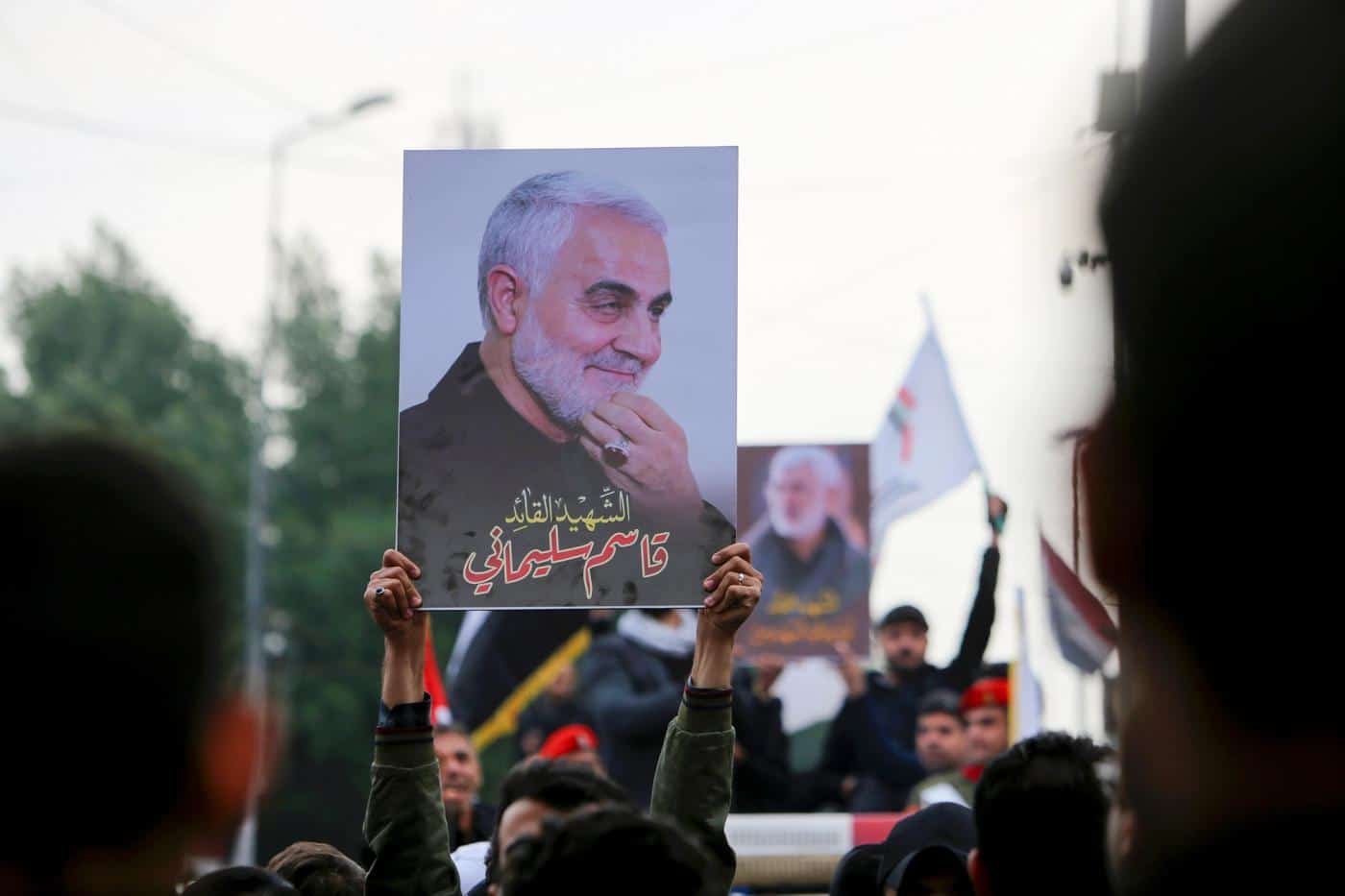Article, FEATURED STORIES, Middle East, news
Fallout From Trump Ordered Assassination Has Significant Ramifications In Middle East

A Mourner Holds A Picture Of Slain Iranian Major General Qassem Soleimani During A Demonstration In Iran via Middle East Eye
Iranian Major General Qassem Soleimani was one of the most powerful men within the theocratic power structure within Iran. To those loyal to the Ayatollah’s, he was seen as a champion of the revolution and a man of the people.
He led the elite and controversial Revolutional Guards’ Quds Force and led Iranian military operations in Iraq and Syria since 1998. While fighting ISIS terrorists on the ground, he was also blamed for being the mastermind behind a failed attempt to assassinate Adel Al-Jubeir — Saudi Arabia’s ambassador to the United States at Cafe Milano in Washington D.C.
Middle East Eye details why some US intelligent officials believe he was a direct enemy to the country.
At the height of the civil war between Sunni and Shia militants in Iraq in 2007, the US military accused the Quds Force of supplying improvised explosive devices to Shia militants which led to the death of many American soldiers.
Soleimani was assassinated by a US drone airstrike on January 3, 2020, by the direct order of US President Donald Trump, without the approval of the US Congress or alerting the Iraqi government. The attack took place near the Baghdad International Airport and also killed Abu Mahdi al-Muhandis, the Iraqi-Iranian military commander in charge of the Popular Mobilization Forces (PMF) along with three others.
The move wildly viewed as a breach of international law and the sovereignty of Iraq drew widespread critique from citizens within the Middle East, United States, and around the world. Iraq took their complaints to the United Nations (UN). The official press statement released by the Iraqi Foreign Ministry follows.
The Iraqi Foreign Ministry raised a complaint in two identical letters sent to both the President of the Security Council and the Secretary-General of the United Nations, through the Permanent Representation of the Republic of Iraq in New York concerning the US attacks on Iraqi military sites, and the assassination of high-level Iraqi and friendly military leaders on Iraqi soil, which resulted in the death of the deputy head of the Popular Mobilization Commission, the Martyr Mr. Jamal Jaafar Muhammad (Abu Mahdi Al-Muhandis), along with other martyrs from the Iraqi and friendly leaders, in a serious violation of Iraqi sovereignty and in violation of the conditions for the presence of US forces in Iraq. Iraq called on the Security Council to condemn the bombing and assassinations.
The Iraqi parliament took an extra step in voting to expel US troops from their country due to the violation of trust by President Trump. “Parliament voted on a five-point action plan that would require the Iraqi government to end the presence of foreign troops in the country…” The National begins, “…and withdraw its request for assistance from the anti-ISIS global coalition. This would require new legislation to cancel the existing agreement.”
President Trump responded in bombastic nature to the legal vote from Iraq.
In an exclusive interview with CNN, Major General Hossein Dehghan made a direct military threat towards US military sites stating, “It might be argued that there could be proxy operations. We can say America, Mr. Trump, has taken action directly against us — so we take direct action against America.”
Since the raised tensions President Trump has deployed thousands of troops to the Middle East to prepare for a response to a possible attack from Iran. President Trump would respond with a series of threatening tweets.
On Sunday, Iran said they would end their commitment to limit the enrichment of uranium, which they agreed with as part of the Joint Comprehensive Plan of Action (JCPOA) — tearing up the deal President Trump began ripping away at in May 2018.
Irani Brigadier General Esmail Ghaani, who replaced Soleimani as Quds Force leader, vowed revenge for his predecessors’ assassination when speaking on Irani state television on Monday. “God the almighty has promised to get his revenge, and God is the main avenger. Certainly, actions will be taken.”
Escalation and tension are likely to continue rising as leaders on neither side are showing signs of diplomacy.


